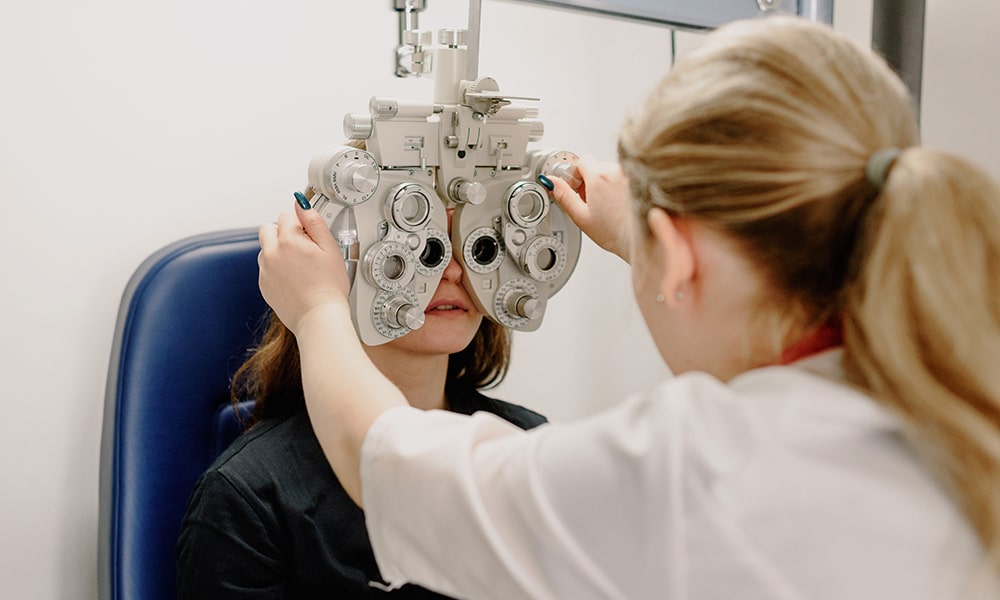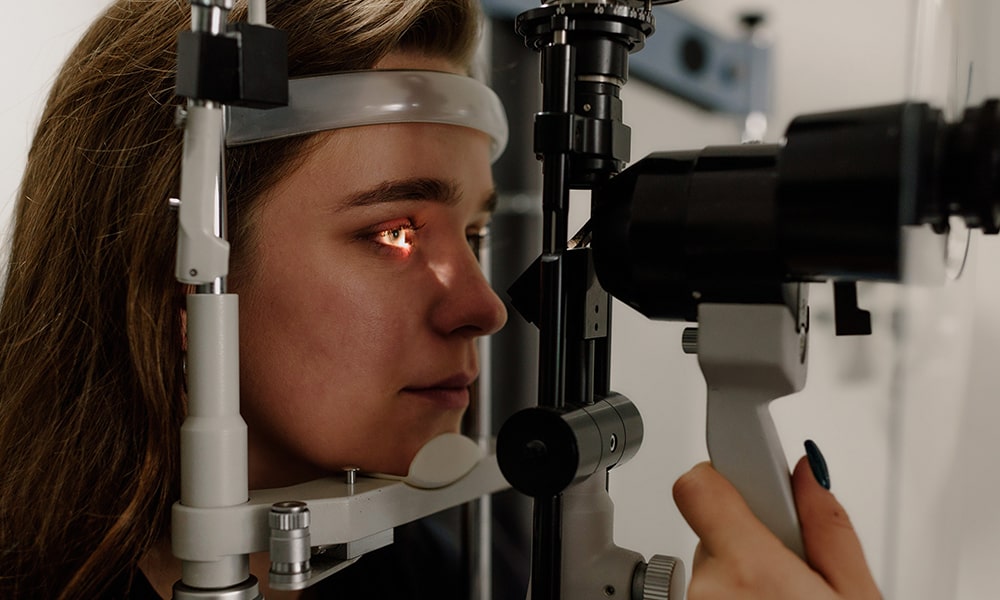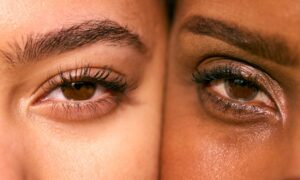
Macular degeneration is a complex ocular disorder that primarily affects the central region of the retina known as the macula. As one of the leading causes of visual impairment, particularly in the elderly population, it’s crucial to have a comprehensive grasp of this condition to prevent, manage, or treat it effectively.
The impacts of macular degeneration
Characterised by a progressive loss of central vision, macular degeneration can be detrimental to daily activities such as reading, driving, and even recognising faces. The degradation in vision is primarily due to damage to the macula, and while peripheral vision generally remains intact, the loss of central vision can significantly affect one’s quality of life.
Different types of AMD
It’s important to recognise that there are two primary types of AMD, each with distinct causes and progressions.
- Dry AMD (atrophic): The more common form of the disease, dry AMD is characterised by the thinning of the macula and the formation of small yellow deposits, known as drusen, under the retina. These changes can cause a slow degradation of vision.
- Wet AMD (exudative): Less common but more severe, wet AMD occurs when abnormal blood vessels grow under the retina and macula, leading to bleeding and fluid leakage. This can cause rapid and severe vision loss if not treated.
Primary causes of macular degeneration
Several factors can contribute to the risk of developing macular degeneration. Age is a significant factor, but genetics, lifestyle choices like smoking and diet, and certain underlying health conditions can also play a role.
- Age: As the name suggests, age-related macular degeneration primarily affects individuals over the age of 50. The risk increases as one gets older.
- Genetics: Family history plays a role. If you have a close family member with AMD, your risk of developing the condition is higher.
- Race: Caucasians are more likely to develop the disease compared to other races.
- Smoking: Smoking cigarettes or being around second-hand smoke increases the risk of AMD.
- High blood pressure: Uncontrolled blood pressure can damage the small blood vessels in the retina, leading to macular degeneration.
💡 Read more: Can Central Serous Retinopathy Lead To Macular Degeneration?
Environmental and lifestyle factors
Lifestyle choices and environmental factors also contribute to the likelihood of developing AMD.
- Diet: Diets high in saturated fats, and cholesterol, and lacking in antioxidants and certain minerals can increase the risk of macular degeneration.
- Obesity: Research suggests that being overweight can increase the likelihood of progressing to the advanced stages of AMD.
- Exposure to sunlight: Prolonged exposure to ultraviolet (UV) light from the sun may increase the risk of AMD.
- Cardiovascular diseases: Conditions affecting the heart and blood vessels may increase the risk of AMD.

Preventing and slowing AMD progression
Although some risk factors, such as age and genetics, cannot be changed, there are measures one can take to lower the risk or slow the progression of AMD:
- Regular eye check-ups: Early detection can help manage and potentially slow down the progression.
- Dietary considerations: A diet rich in green leafy vegetables, and fish, and low in saturated fats can potentially lower the risk. It’s also worth taking eye supplements to protect eye health.
- Avoid smoking: As mentioned, smoking is a significant risk factor. Quitting can reduce the chances of developing AMD.
- Protective eyewear: Wearing sunglasses that block UV rays can help reduce the risk.
- Control other health conditions: Managing conditions like high blood pressure and cardiovascular diseases can decrease the risk.
Many factors can cause AMD
Macular degeneration is a significant cause of vision loss among older adults. While age is a primary factor, genetics, lifestyle choices, and environmental factors also play crucial roles in its development. Awareness of these risk factors and making informed lifestyle choices can play a pivotal role in preventing or slowing the progression of AMD. Regular eye exams and prompt attention to any vision changes can further assist in managing the condition.





